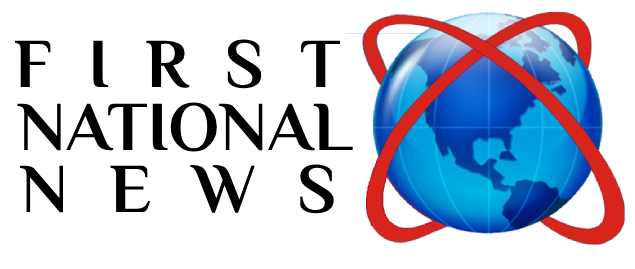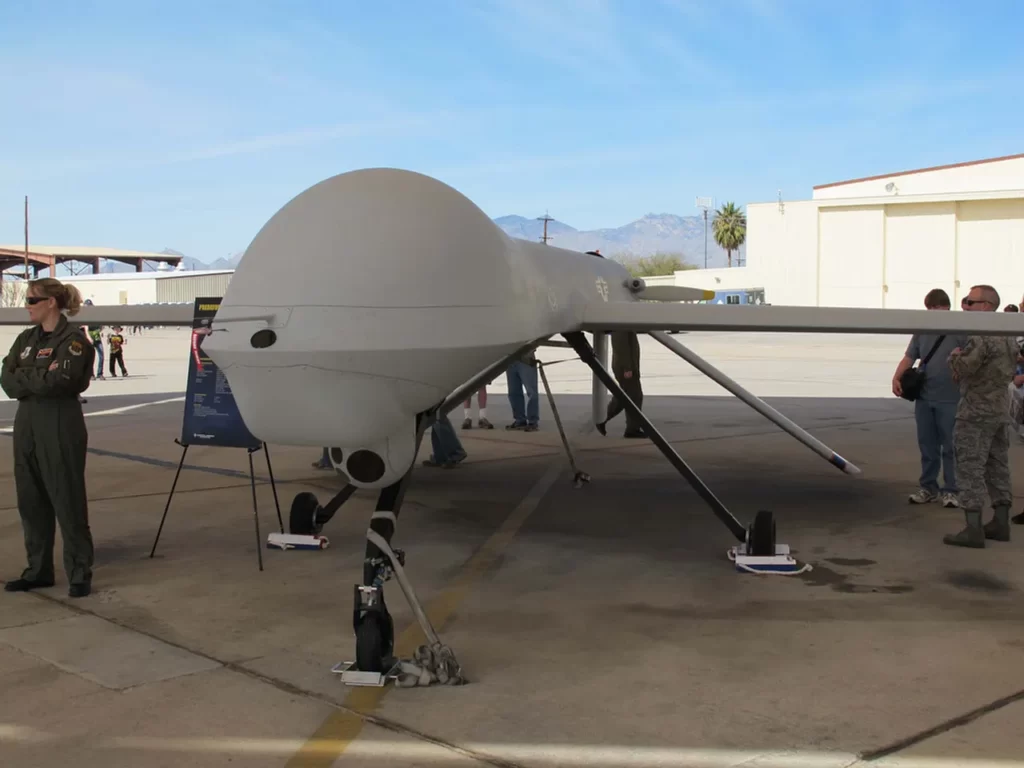Ukraine has asked the US to provide it with powerful aircraft as it seeks an end to its war with Russia.
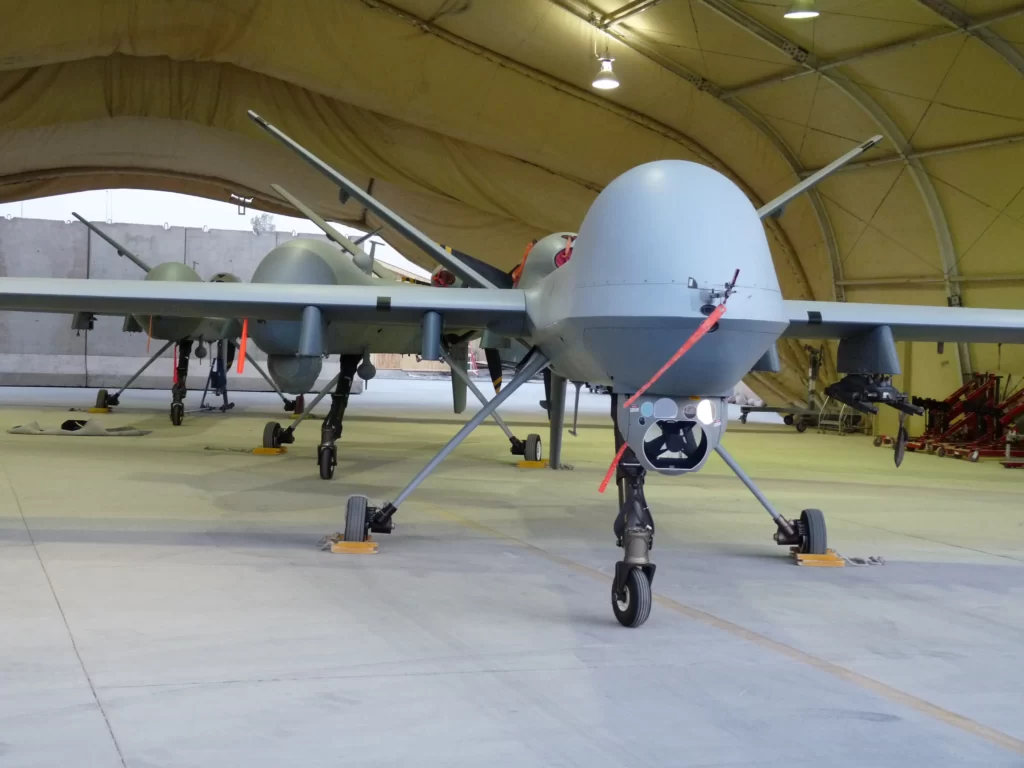
A group of 16 US senators has called on the Biden administration to carefully consider Ukraine’s request for Gray Eagle stealth fighter jets to attack Russia.
The Biden administration has rejected an application for the Gray Eagle drone, which has an operating altitude of 8,800 meters (29,000 feet) and can fly for more than 24 hours, based on fears that the drones will be introduced and could increase the conflict.
As Russia increasingly engages in so-called suicide attacks on civilian infrastructure, Ukraine has urged the United States to provide it with powerful drones that could help them gain an advantage in the conflict.
In their letter, lawmakers gave Secretary of Defense Lloyd Austin until Nov. 30 to explain why the Pentagon believes that drones are not suitable for fighting in Ukraine. Early Tuesday morning, the Russian governor in Crimea, Mikhail Razvozhaev, announced the landing of two drones in the city of Sevastopol, where the Russian air defense has been operating.
“Our air defense forces are working now,” he said on social media. “There was an attack by drones. According to the first information, two drones [unmanned aerial vehicles] have already been shot down. All troops and services are on alert.
Ukrainian President Volodymyr Zelenskyy called for more help on Tuesday, accusing Russia of using winter temperatures as a “weapon of destruction” by attacking Ukraine’s energy infrastructure.

“The Kremlin wants to turn this winter into a weapon of mass destruction,” the Ukrainian president told a meeting of French leaders in a video message.
To get Ukraine’s winter season during the conflict, Zelenskyy encouraged the Association of Mayors of France to send manufacturers, support for mines and equipment for Ukrainian emergency services and doctors.
Zelenskyy said half of Ukraine’s energy infrastructure was destroyed by the Russian attack, leaving millions without power and water as winter sets in and temperatures drop below freezing.
Increased energy consumption during the winter months has prompted Ukrainian President Denys Shmyhal to announce emergency shutdowns in addition to those currently planned across the country.
Sergey Kovalenko, the head of energy supplier YASNO for Kyiv, said that workers are working hard to complete repairs before the onset of winter, but Ukrainians will have power outages at least until the end of March. Damage to Ukraine’s power industry from Russian airstrikes is “extreme”, the head of Ukraine’s National Electricity Authority said.
Volodymyr Kudrytskyi, director general of Ukrenergo, said briefly that despite the damage, his company wants to continue to help in providing conditions for Ukrainians who want to stay in the country during the winter.
The United States continued its efforts to speed up aid to Ukraine and encouraged donors to do the same by announcing $4.5 billion in economic aid to begin rolling out in next week. The money is intended to strengthen economic stability and support basic government operations, US Treasury Secretary Janet Yellen said.
Ukraine also received today 2.5 billion euros ($2.58 billion) in major financial assistance (MFA) from the European Union, bringing the total MFA granted to Ukraine since February 24 to 6.7 billion euros ($6.9 billion). Prime Minister Denys Shmyhal wrote that the aid was “another step in unity” and expressed his gratitude to EU leaders.
Volodymyr Kudrytskyi, director general of Ukrenergo, said briefly that despite the damage, his company wants to continue to help in providing conditions for Ukrainians who want to stay in the country during the winter.
The United States continued its efforts to speed up aid to Ukraine and encouraged donors to do the same by announcing $4.5 billion in economic aid to begin rolling out in next week. The money is intended to strengthen economic stability and support basic government operations, US Treasury Secretary Janet Yellen said.
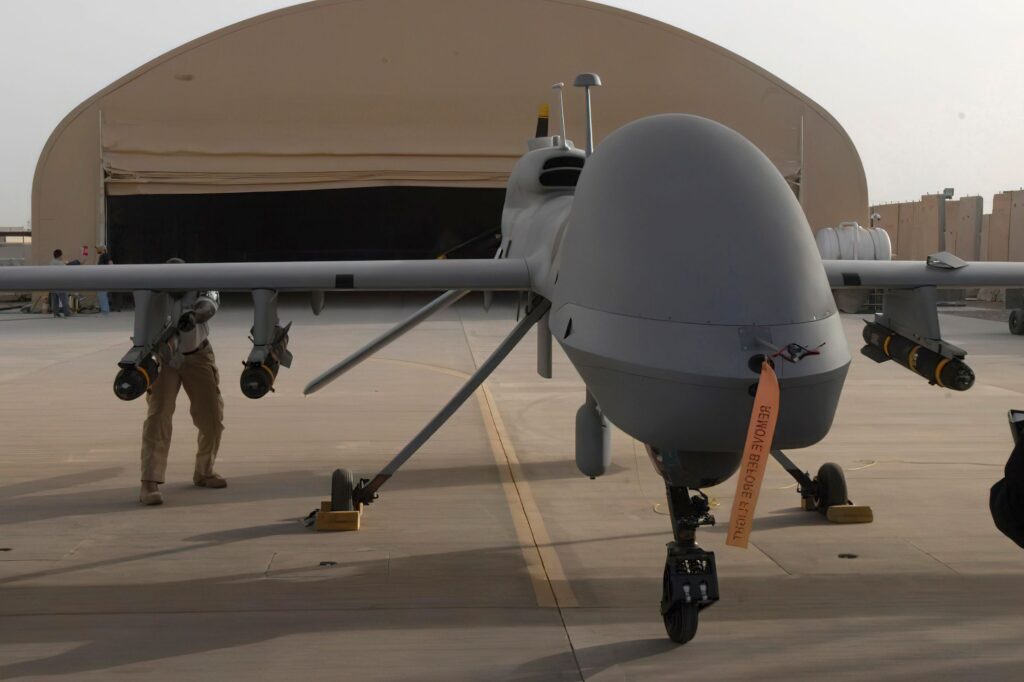
Ukraine also received today 2.5 billion euros ($2.58 billion) in major financial assistance (MFA) from the European Union, bringing the total MFA granted to Ukraine since February 24 to 6.7 billion euros ($6.9 billion). Prime Minister Denys Shmyhal wrote that the aid was “another step in unity” and expressed his gratitude to EU leaders.
In support of Ukraine, Canada said on Tuesday that it will impose more sanctions on the administration of Belarusian President Alexander Lukashenko for supporting Russia’s war in Ukraine. Ottawa said it would ban 22 other Belarusian workers and 16 Belarusian companies in military production, technology, engineering, banking and railways.
He said that some of the workers were “participants in the placement and delivery of Russian troops and equipment involved in the invasion of Ukraine.”
Is Germany changing strategy vis-à-vis Ukraine?
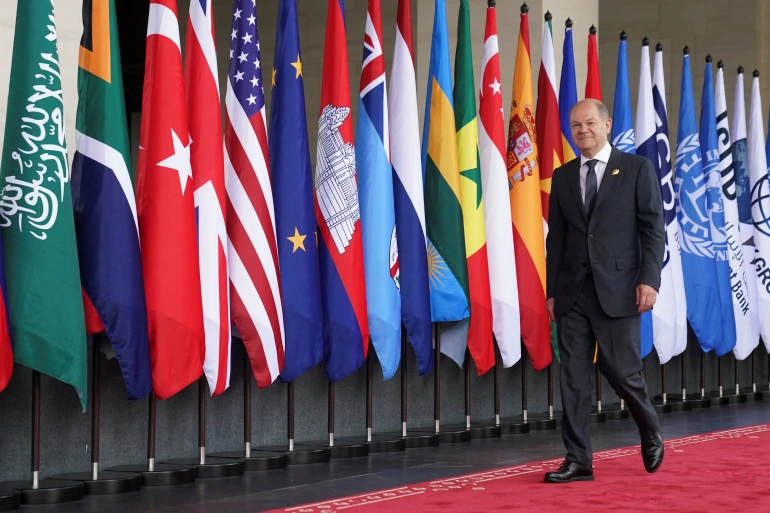
Since the beginning of Russia’s full-scale invasion of Ukraine, Germany, particularly the European Union’s Eastern European allies, has been criticized for being too cautious. In particular, they criticized the German government for dragging its feet on arms imports. To be successful, Berlin sent weapons, including self-propelled guns and several rocket launchers, which proved themselves in the fight against the Russian army.
And the German government has been very open about sanctions against Russia. He stopped the lucrative Nord Stream 2 pipeline project, delivering Russian gas to the country, even before the Russian invasion began.
Still, there are signs that the Germans are getting tired of the war in Ukraine. A survey conducted in October shows that 40% of Germans completely or completely believe that NATO inspired Russia to attack Ukraine. This figure increases to 59% in the former part of communist East Germany.
About a third of respondents share the opinion that Ukraine is a part of Russian history and around the same number accept the idea of conspiracy and the United States has established a secret laboratory on Ukrainian soil to produce biological weapons. What is important in this research is practice. Compared to the poll of the same organization, CEMAS conducted in April, the share of respondents holding pro-Russian or Russian-compatible views has increased. And the Kremlin’s propaganda in Germany is not news. The anti-Americanism of the left and the far right, as well as the pacifism embedded in Berlin’s political culture, provide fertile ground for the Russian story. But Germany is not alone in this, as the data shows.
In Italy, public support for sending weapons to Ukraine is around 41%, compared to 57% in Germany and 62% in France. Doubts exist in Slovakia, Bulgaria – whose parliament has decided to send weapons to Kyiv – and in Hungary, the current only member of the EU. In Greece, 28% blame NATO for the conflict, and in Bulgaria, 44%.
The war – and especially its impact on the energy boom – has also led to discontent. On October 29, a large rally took place in Prague against the pro-EU government’s decision to support Ukraine. On November 5, tens of thousands of people marched in Rome, calling for peace and an end to arms shipments to Kyiv. Germany also saw protests and protests against the war and the rising cost of living.
This is exactly what the plan of Russian President Vladimir Putin is looking for. By prolonging the war in various ways – from endless gatherings and endless attacks on civilian infrastructure across Ukraine – it is saving money and failing to exist. ‘one sunset lined up.
He also tried to put economic pressure on the EU by cutting gas prices just before the start of the European winter. EU countries have managed to fill up reserves for use during the hot season, and gas prices fall after peaking in summer, which can reduce the impact of Russia’s energy crisis.
However, the recession is coming, the EU government may face a tough challenge again from the populists. Recent elections in Italy and Sweden, in which far-right parties have made significant gains, are a wake-up call.
Populists can scapegoat Ukrainian refugees, including more than a million who are currently in Germany. If Berlin changes its mind and reduces its support for Kyiv, other EU countries will quickly follow suit. After suffering setbacks on the battlefield, Putin is betting on victory on the political front in Europe.
At the moment, such a victory is not possible. Public opinion in Germany is still in favor of Ukraine.
A September poll by public broadcaster ZDF shows that 74% of Germans support supporting Ukraine despite high energy bills, which have since fallen. In another October poll, about 86% of citizens see Russia as a “global threat.” It is unlikely that this will change in the future. Germany’s long-term strategy also shows strong support for the anti-Russian front. Berlin has launched an ambitious program to increase defense spending and reform foreign and security policy. As the German government allocates 100 billion euros ($102 billion) to modernize the military, Russia faces a more powerful EU west of its borders. And as the handover in Ukraine shows, part of the new equipment received by Berlin can go directly to the Donbass or Zaporizhia regions.
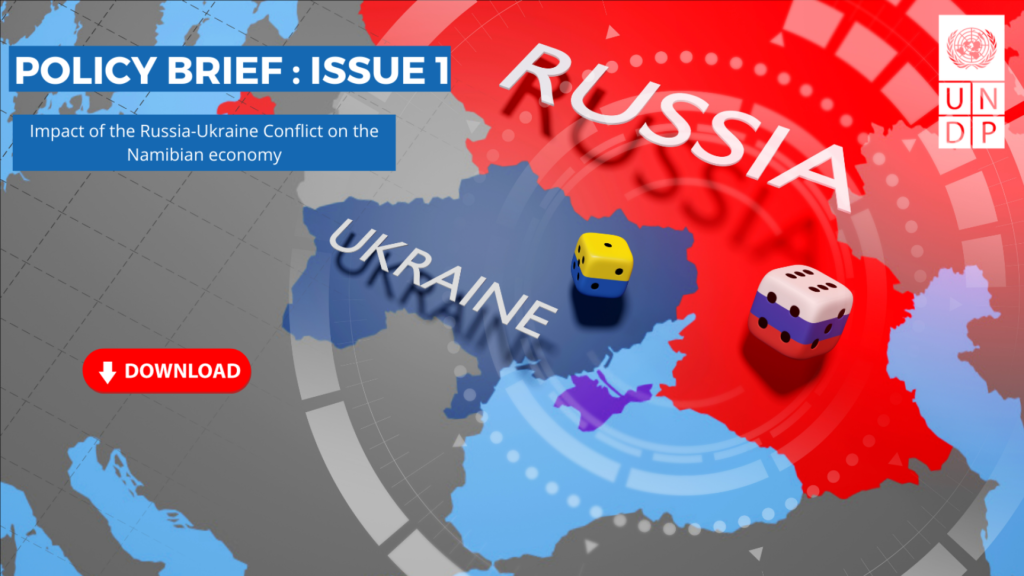
In political terms, Chancellor Olaf Scholz has been quick to support calls for peace talks between Ukraine and Russia. In fact, he is trying to get China, India and other powers to distance themselves from Putin. Scholz was criticized for visiting Beijing, but the trip seems to be paying off. The final statement adopted at the recent G20 summit in Indonesia went this way. Leaders including Chinese President Xi Jinping and Indian Prime Minister Narendra Modi have rejected the “age of war” and condemned the threat of using nuclear weapons, an unpopular move by Putin.
And if there is a Western actor who can change the course of the war in Ukraine, it is not Germany but the United States. American support was essential in helping Kyiv resist the offensive and liberate about half of the land Russia had at the start of its invasion. The interminable midterm elections won’t change American politics much, but there are big questions about Donald Trump. Putin’s best hope is to continue the war, wreaking havoc and causing massive human suffering in Ukraine as he faces a transition to the White House in two years. Trump’s return to Washington would be a bigger prize for the Kremlin than a turnaround in Berlin.
A letter of emergency aid was written in the middle of the fire
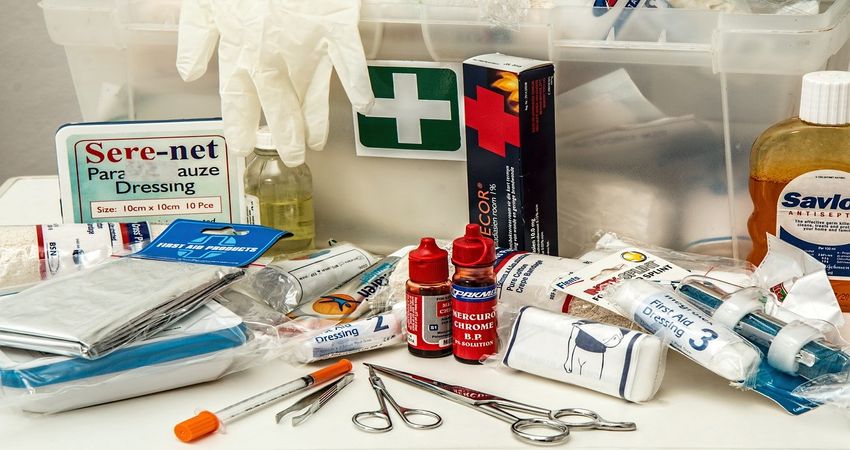
Ukrainian President Volodymyr Zelenskiy said his country is maintaining a network of aid stations where citizens can go if Russian airstrikes lead to major lockdowns.
The European Union has launched its new sanctions plan aimed at paying the price of Russian oil exports by delaying its full implementation and simplifying the main export process. The group proposed adding a 45-day change to the cap, according to a Bloomberg report. The proposed grace period will apply to oil shipped prior to December 1st. 5 – the date on which the oil embargo will come into effect – and it will be released from January 19, linking the EU to the clauses previously announced by the US and the UK.
EU representatives will meet on Wednesday with the aim of adopting the cap, Bloomberg previously reported. It is also expected that the delegates will discuss the price level during the meeting. If they approve the plan, the EU and the Group of Seven could announce the cap earlier that evening.
(See RSAN and Bloomberg Terminal for the Russian sanctions dashboard.)
Russia is trying to use the cold as a ‘weapon of destruction’, says Ukraine
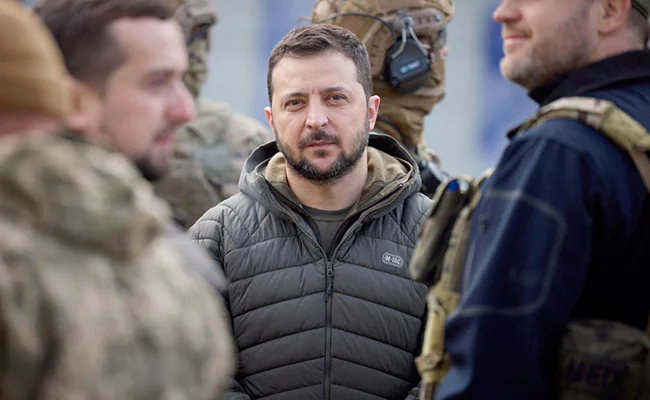
Russia Ukraine War: “The Kremlin wants to turn this winter into a weapon of mass destruction,” Volodymyr Zelensky told a meeting of French leaders in a video message.
Kyiv: Ukrainian President Volodymyr Zelensky said on Tuesday that Russia is trying to use the cold weather this winter as a “weapon of destruction” by hitting energy infrastructure.
“The Kremlin wants to turn this winter into a weapon of mass destruction,” Zelensky told a meeting of French leaders in a video message. “To survive this winter and prevent Russia from turning winter into a tool of fear and subjugation, we need a lot,” he added.
He urged the Association of Mayors of France to send manufacturers, support for the construction of mines and equipment for the emergency services of Ukraine and doctors. “I am asking you to be generous in your help and to support the country and the country against terrorism,” he added.
The World Health Organization warned on Monday that millions of Ukrainian lives are at risk as the country’s power grid struggles under the weight of Russian attacks. Moscow has deliberately targeted energy infrastructure, leaving millions of homes across the country without power as temperatures drop.
“This winter will be about survival,” WHO Regional Director for Europe Hans Kluge told reporters on Monday, adding that it “will put the lives of millions of people in Ukraine at risk.”
Ukraine War: How Germany Stopped Drug and Russian Gas
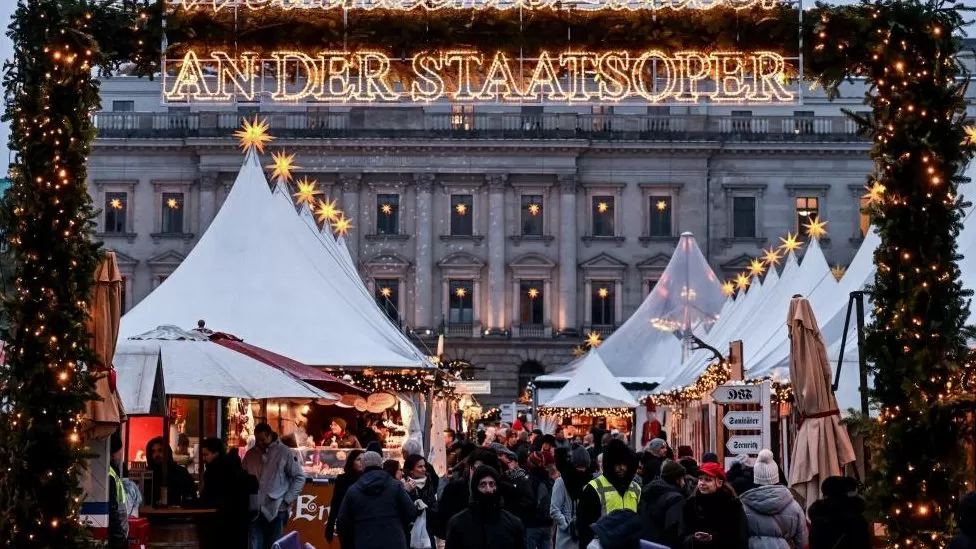
When Vladimir Putin turned off the gas fires in Europe, Germany feared the autumn cold more than most. Ministers rushed to get more supplies, painfully aware that the strong reliance on Russian gas has made the country’s production more exposed.
But a few months later, as the Christmas market lights up, there is a sense of optimism in the warm air of Glühwein. Germany’s hastily designed plan to do without Russian gas seems – for now – to be working. Not only are the country’s gas stations full; the result, on the one hand, of this frenetic – and expensive – buying activity in the world market.
But, on the windswept coast of Germany’s North Sea, engineers have just completed construction – in record time – of the country’s first LNG terminal.

LNG is natural gas that has been cooled in liquid form to reduce its volume and make it easier to transport. It is turned back into gas when it reaches its destination.
Germany is well known for its political heaviness; This type of work would normally take years, but authorities have cut red tape to have it completed in less than 200 days.
The most important part of the port – the “Floating Storage and Regasification Unit” (FSRU) – has not been completed. The FSRU, which is a specialist ship that converts LNG to its gas state, will be leased at 200,000 euros (£172,732) per day. But, within a few weeks, shippers from countries such as the United States, Norway or the Emirates can deliver their cargo here at the port of Wilhelmshaven. Station operator Uniper, now controlled by the German government, is interested in suppliers but insists a deal is in place. Five more LNG terminals are planned. Most should be completed next year. German companies depend on it.
“If we don’t have gas, we have to put out the fire,” says Ernst Buchow as we stand at his brickyard about half an hour from Wilhelmshaven. The bricks it produces will be fired in large furnaces at temperatures up to 1,200°C (2,192°F). He hopes to one day switch to green hydrogen but says it will take time. Currently, it is completely dependent on natural gas.
“It’s not just the politicians. The company wants a Russian gas contract. Just a year ago, these contracts gave Germany 60% of its gas, most of it through the Nordstream gas pipeline from Russia. The government is still hoping – despite political and public opposition – the opening of the gas pipeline Nordstream 2 which would have doubled the amount of Russian gas entering Europe through Germany. Today, according to the Federal Agency for Energy Networks, Germany does not have Russian gas. But, to avoid winter shortages, its experts estimate that the LNG terminal will be commissioned early next year and that gas consumption will be reduced by 20%. Just getting there would be considered a huge national achievement. But this has a price. Germany is an economic burden; what he wants, he usually gets. Its new demand for natural gas is increasing global demand. That could also put other poorer countries, such as Bangladesh and Pakistan, in a vulnerable position.
Professor Andreas Goldthau of the Willy Brandt School of Public Policy says, “You have a lot of countries – emerging economies in particular – that are closed to the market and can no longer get the LNG they need.” They “have less purchasing power than Europeans and especially Germans”.
This, he warns, makes them more likely to put out fires and may increase their reliance on “dirty” fuels such as coal.
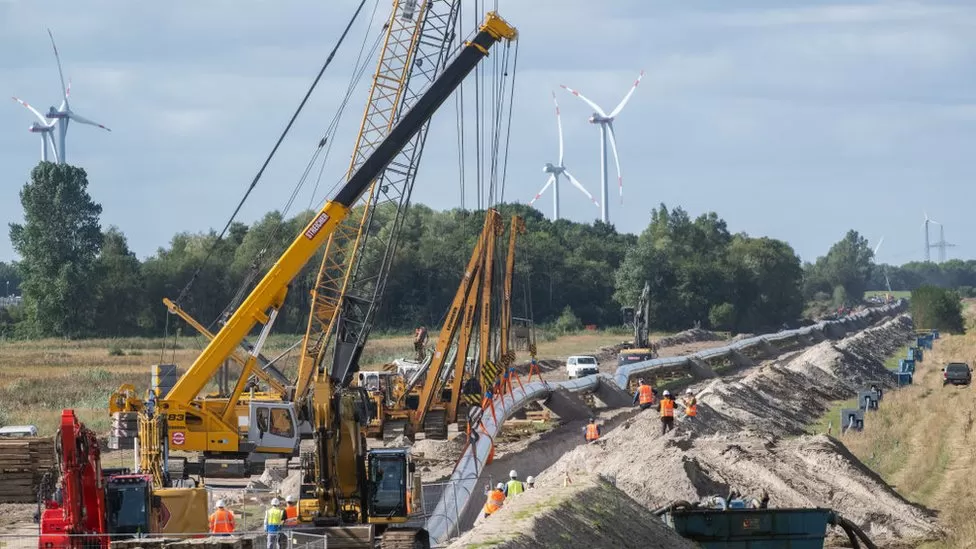
And what about Germany’s desire for a better future? LNG is, after all, fossil fuel. Everyone involved in the Wilhelmshaven project insists that LNG is the “replacement” fuel.
Uniper has promised to build facilities to handle green hydrogen alongside the LNG terminal. This sparked a major initiative at the Wilhelmshaven town hall. Mayor Carsten Feist said the LNG terminal will not bring much-needed jobs to the city. But his plans for green energy companies will.
“Many of the energy changes that we need to achieve for our planet to achieve a habitable climate fifty or a hundred years from now, much of what is needed here in Germany will happen in Wilhelmshaven.”
Perhaps the most obvious cost is the nominal cost. The six LNG terminals cost the government more than six billion euros. By their own admission, this is more than double what the ministry had previously predicted and may rise next year. This country learned long ago the value of providing energy with security. It’s paying off now.
